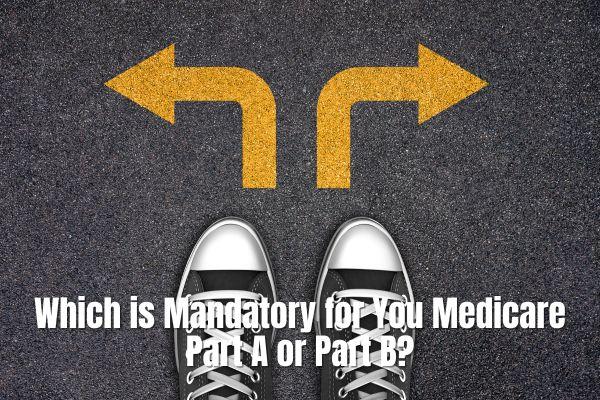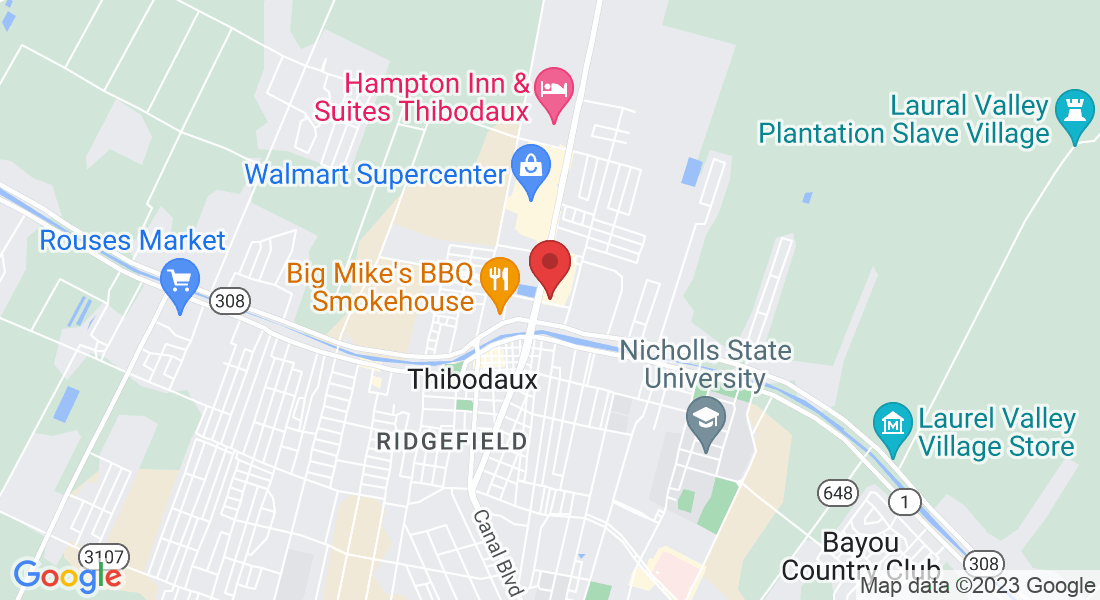Blog
Learn all you need to know about Louisiana Medicare Plans, Medigap, Medicare Supplement, and Medicare Advantage Plans.

Medicare Part A vs. Part B: Which is Mandatory for You?
This article provides an overview of Medicare Part A and Part B, highlighting their differences, enrollment requirements, and costs.
Overview of Medicare Program
Medicare, a federal health insurance program primarily designed for individuals aged 65 and older or those with specific disabilities, plays a vital role in providing essential healthcare coverage. The program is divided into four parts: Part A (Hospital Insurance), Part B (Medical Insurance), Part C (Medicare Advantage). Medicare is divided into several parts, including Part A (Hospital Insurance), Part B (Medical Insurance), Part C (Medicare Advantage), and Part D (Prescription Drug Coverage).
Understanding the nuances of each part is crucial for making informed decisions about healthcare coverage. For example, while Part A typically does not require a premium for those who have worked and paid Medicare taxes for a certain period, Part B comes with a monthly premium, the amount of which may vary based on income levels. These variations in coverage and costs highlight the importance of assessing individual healthcare needs and financial circumstances when enrolling in Medicare.
Navigating the complexities of Medicare enrollment and coverage options can be overwhelming, but with the right resources and support, individuals can make confident decisions about their healthcare. By exploring the unique features of each Medicare part and seeking expert guidance, beneficiaries can ensure they have comprehensive coverage that meets their medical requirements and budget constraints. For personalized assistance in understanding and selecting the most suitable Medicare Plan, individuals can reach out to Bourgeois Insurance Agency at (985) 803-8999 or visit their website at Bourgeois Insurance Agency for valuable insights and support.
Understanding Medicare Part A
Medicare Part A, often referred to as Hospital Insurance, plays a crucial role in covering inpatient care for beneficiaries. For example, if a Medicare enrollee requires hospitalization for a covered service, Part A helps cover the costs associated with their stay, including room charges, meals, nursing services, and other related expenses. This coverage is especially beneficial for older adults who may need hospital care due to various health conditions or emergencies.
Moreover, apart from hospital inpatient stays, Medicare Part A extends its coverage to include skilled nursing facility care. This means that if a beneficiary needs skilled nursing services following a hospital stay, Part A helps cover the expenses for this type of care. For instance, if an individual requires rehabilitation services or skilled nursing assistance to recover and regain independence, Medicare Part A can step in to ease the financial burden associated with such services. This coverage can be particularly valuable for seniors or individuals with certain disabilities who require ongoing medical care and support beyond a hospital setting.
Additionally, Medicare Part A also includes coverage for hospice care and some home health services. This ensures that beneficiaries with terminal illnesses or those in need of palliative care receive the necessary support and services in their preferred setting, whether it be at home or in a hospice facility. By offering coverage for these essential services, Medicare Part A aims to provide comprehensive healthcare options for individuals facing serious health challenges, promoting comfort, dignity, and quality of life during challenging times.
Exploring Medicare Part B
Medicare Part B is a vital component of the Medicare program, covering a wide range of medically necessary services essential for maintaining good health. These services include doctor visits for illnesses and preventive care such as screenings and vaccinations. For example, if an individual needs to see a specialist for a specific medical condition, Medicare Part B would typically cover these consultations and treatments, offering financial assistance in managing healthcare costs.
Moreover, Part B requires beneficiaries to pay a monthly premium, the amount of which can vary based on their income levels. This premium helps fund the various services covered under Part B, ensuring that individuals have access to quality healthcare when needed. For instance, individuals with higher incomes might pay a higher premium than those with lower incomes, reflecting a progressive approach to healthcare funding within the Medicare system. It is crucial for beneficiaries to understand these cost structures and enrollment requirements to make informed decisions about their healthcare coverage.
Timely enrollment in Medicare Part B is highly encouraged to avoid penalties for late enrollment. Missing the initial enrollment period or delaying enrollment without qualifying reasons can lead to financial consequences in the form of higher premiums. By enrolling on time, beneficiaries can ensure continuous coverage and access to necessary medical services without incurring additional expenses. Understanding the significance of timely enrollment and the services covered under Part B is essential for individuals approaching Medicare eligibility age, enabling them to make informed choices about their healthcare coverage.
Mandatory Enrollment in Medicare Part A
Most individuals turning 65 and receiving Social Security benefits are automatically enrolled in Medicare Part A. This automatic enrollment ensures that eligible individuals have access to essential hospital insurance coverage without any additional steps. However, it's crucial to note that delaying enrollment in Part A when eligible could result in coverage gaps and potential penalties. For example, if someone delays their enrollment in Part A and then experiences a sudden medical emergency that requires hospitalization, they may face significant out-of-pocket costs due to the lack of Medicare coverage.
Beneficiaries with other creditable coverage can choose to defer Part A enrollment without facing adverse consequences. This flexibility allows individuals who have qualifying employer-sponsored insurance or coverage through another source to continue their existing healthcare benefits without being penalized for not enrolling in Medicare Part A immediately. For instance, if an individual is still working past the age of 65 and has health insurance through their employer, they may decide to delay their Part A enrollment until they retire and their employer coverage ends. This option provides individuals with the opportunity to make informed decisions based on their specific healthcare needs and circumstances.
Mandatory Enrollment in Medicare Part B
Enrollment in Medicare Part B is mandatory for individuals aged 65 and older, except in cases where they have creditable coverage through an employer or another qualifying source. It is crucial to understand that delaying enrollment in Part B when eligible can have significant consequences, including incurring a late enrollment penalty and experiencing gaps in healthcare coverage. For example, if an individual delays enrolling in Part B and then faces an unexpected medical need that would have been covered under Medicare, they may be responsible for all associated costs out of pocket.
Moreover, individuals who are still employed past the age of 65 and covered under an employer's health insurance plan are generally required to enroll in Medicare Part B once they retire. Failing to enroll in Part B under such circumstances could lead to a lack of coverage for necessary medical services, leaving individuals vulnerable to high medical expenses and limited access to healthcare providers. Therefore, it is essential for individuals approaching Medicare eligibility to carefully consider their enrollment options and timelines to ensure seamless access to comprehensive healthcare coverage.
Contrasting Medicare Part A and Part B
When comparing Medicare Part A and Part B, it's essential to delve deeper into their coverage variations and enrollment requirements. Medicare Part A predominantly caters to hospital insurance needs, encompassing services like inpatient care during hospital stays, skilled nursing facility care, hospice care, and some home health services. For instance, if an individual requires a prolonged hospital stay due to a serious illness, Medicare Part A would cover the associated costs, ensuring financial relief during a challenging time.
On the other hand, Medicare Part B emphasizes outpatient services and medical appointments critical for overall health maintenance. It covers medically necessary services like doctor visits, preventive care, outpatient surgeries, lab tests, and durable medical equipment. For example, if a beneficiary needs regular doctor visits to manage a chronic condition or undergo preventive screenings, Medicare Part B becomes indispensable in providing access to these essential healthcare services.
Furthermore, while Medicare Part A is typically premium-free for most beneficiaries who meet specific eligibility criteria, Part B requires a monthly premium payment, the amount of which can vary based on income levels. By understanding these distinctions and the unique benefits each part offers, individuals can effectively evaluate their healthcare needs and opt for the coverage that best aligns with their requirements.
We're Here to Help
When it comes to enrolling in Medicare and understanding the different parts of the program, individuals have various resources available to help them navigate this complex system.
Moreover, Bourgeois Insurance Agency stands out as a reliable partner in the process, offering expert guidance on navigating Medicare Plans, including Medicare Advantage and Supplement options. Whether individuals are exploring their initial Medicare enrollment or considering additional coverage options, Bourgeois Insurance Agency's knowledgeable agents are dedicated to helping clients make informed choices that best suit their healthcare needs.
For those looking for tailored assistance and a seamless enrollment process, reaching out to Bourgeois Insurance Agency at (985) 803-8999 or visiting their website at https://bourgeoisinsurance.com/ can provide the necessary support to confidently navigate the Medicare landscape. Don't hesitate to leverage these resources to ensure you make the most of your Medicare coverage options and secure the healthcare benefits you deserve.
Address
Office Address
311 N Canal Blvd Thibodaux, LA 70301
Email Address
Office Number
(985) 803-8999
Resources
Contact Us
Address:
311 N Canal Blvd Thibodaux, LA 70301
Plans are insured or covered by Medicare Advantage (HMO, PPO, and PFFS) organization with a Medicare contract and/or a Medicare-approved Part D sponsor. Enrollment in the plan depends on the plan’s contract renewal with Medicare. We do not offer every plan in your area. Please contact medicare.gov or 1-800-Medicare to get information on all your options.
Bourgeois Insurance Copyright 2023 --
All Rights Reserved --


